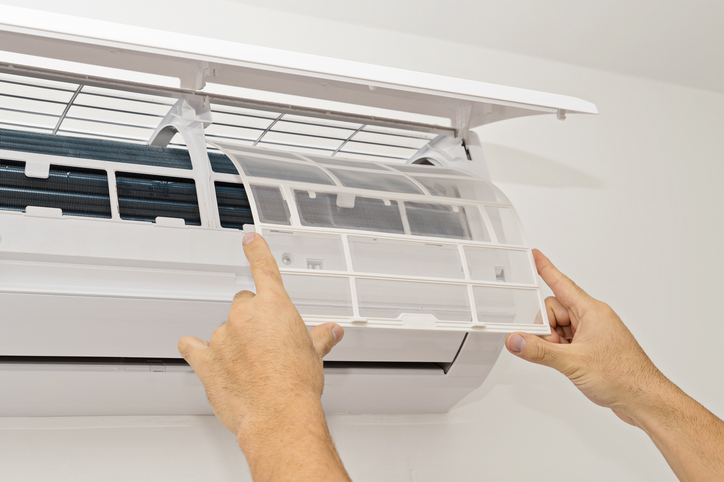Introduction
The air inside your home directly affects how you breathe, sleep, and function daily. Whether you’re lounging in the living room or working from a home office, poor air quality can lead to fatigue, allergies, and long-term health problems. That’s where HVAC systems step in—not just to regulate temperature but also to control air purity across all rooms. Dirty ducts, clogged filters, and malfunctioning components spread contaminants rather than remove them. With regular care and expert inspection, your HVAC unit becomes the backbone of healthier living spaces. In this article, we explore how scheduled maintenance supports indoor air quality and what areas of your home benefit the most.
How HVAC Maintenance Improves Your Home’s Air Quality
1. Dirty Filters Spread Pollutants Throughout the Home
Air filters trap dust, pollen, and pet dander before these particles enter your rooms. But over time, filters become saturated and lose effectiveness. A neglected filter no longer captures airborne debris efficiently—instead, it allows dirty air to circulate. This affects bedrooms, living areas, and kitchens alike. Regular filter replacements during air conditioning and heating care reduce the buildup of pollutants that aggravate asthma and allergies. Professionals also check for the proper filter type and MERV rating to match your household needs. Clean filters lead to cleaner breathing spaces in every corner of your house.
2. Duct Cleaning Reduces Mold and Allergen Recirculation
Air ducts act as the delivery system for treated air. When ducts harbor dust, mold spores, or rodent droppings, the entire home gets contaminated through airflow. Mold growth in ducts releases mycotoxins that affect sensitive individuals. Through routine HVAC upkeep, professionals inspect and clean the ductwork to stop cross-room contamination. Special attention to duct leaks and insulation helps prevent moisture that promotes mold. Rooms with poor ventilation—like basements or spare bedrooms—benefit especially from thorough duct cleaning that restores fresh, clean air circulation.
3. Coil and Drain Cleaning Stops Microbial Growth
The evaporator coil inside your HVAC unit plays a critical role by absorbing heat and pulling moisture from the air. When coated with dust or biofilm, it allows excess moisture to linger, creating a breeding ground for bacteria and mold. Clogged drain pans can also overflow, causing hidden leaks and water damage. Just like commercial indoor air quality relies on system cleanliness, homes also benefit from routine coil and drain cleaning. Removing organic buildup helps the unit cool more efficiently and produce drier air. This reduces musty odors and microbial buildup, especially in rarely used or low-ventilation areas like storage rooms and utility closets.
4. Balanced Humidity Prevents Dust Mites and Mold Growth
Too much humidity promotes dust mites, mildew, and respiratory discomfort, while air that’s too dry causes throat irritation and static buildup. HVAC systems that are poorly maintained often struggle to regulate humidity properly. Technicians test and calibrate humidistats, inspect condensate lines, and check dehumidification performance during HVAC upkeep. This keeps the relative humidity between 30% and 50%—ideal for minimizing allergens. By controlling moisture levels, every room—from humid laundry rooms to dry home offices—benefits from a more balanced and healthier atmosphere.
5. System Calibration Supports Steady Airflow and Freshness
Imbalanced airflow leads to some rooms feeling stuffy while others stay drafty. This inconsistency contributes to uneven air quality. Rooms farther from the HVAC unit often suffer from stale air and higher levels of dust. Through indoor air quality services, technicians adjust blower motors, inspect dampers, and test thermostat settings to maintain even airflow. Steady air circulation helps remove contaminants and brings a sense of freshness throughout the house. Balanced airflow also prevents overheating or overcooling, which reduces wear on system parts and supports energy savings.
Indoor air health is often compromised not by external pollutants but by a lack of HVAC attention. From filters and ducts to coils and airflow, each component affects how clean and breathable your indoor environment remains. Without timely care, you risk recirculating allergens, growing mold in hidden areas, and stressing system components. When you commit to regular HVAC care, every room in your home benefits—from the nursery to the garage workspace. Cleaner indoor air quality supports better sleep, healthier lungs, and greater day-to-day comfort.
Conclusion
Breathe cleaner in every room—schedule your expert HVAC maintenance today with Five Star Air & Plumbing. We optimize airflow, remove hidden contaminants, and fine-tune your system for real indoor air quality gains. Call us at 623-244-0414 to get started!




